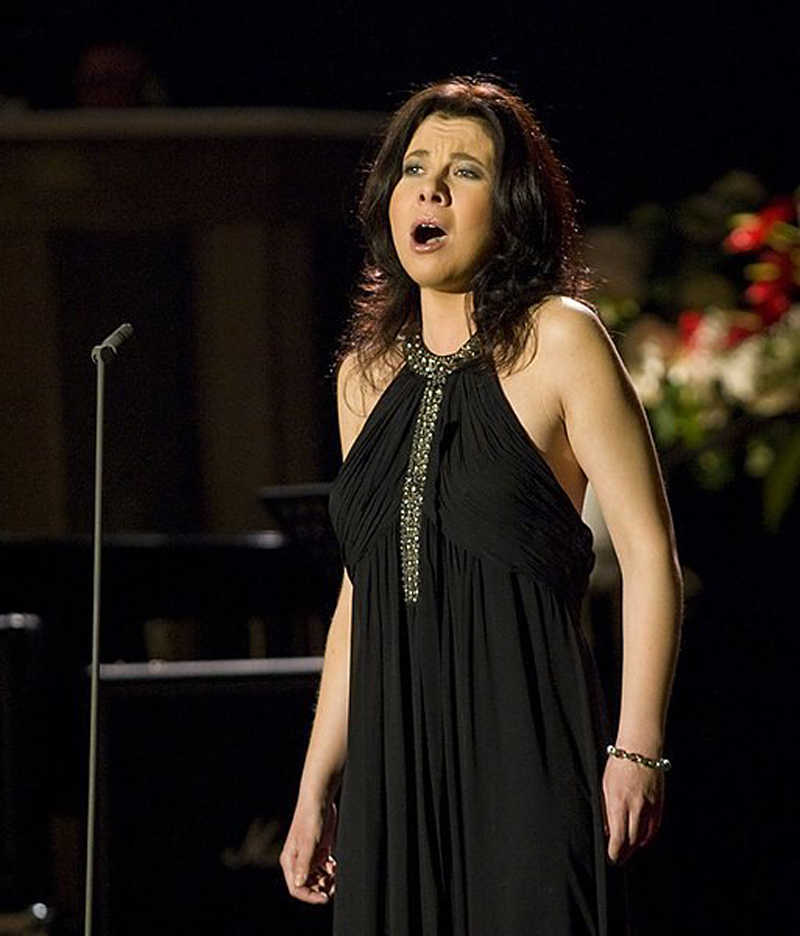For composer Luciano Berio (1925–2003), the music of the past was not anything either to be emulated or dismissed. Instead he liked to treat fragments of it as found objects, elements in a collage, surrounded by other harmonizing, contrasting, or totally unrelated sounds. In the thrilling orchestral chaos of his Sinfonia, for example, he sprays musical graffiti all over a Mahler scherzo; his Rendering (which the Seattle Symphony played last weekend) sends bits of Schubert into outer space. And his 1964 Folk Songs, for soprano and six instruments, transforms a collection of traditional melodies from various cultures. Sometimes Berio just adds an easy, strumming harp accompaniment; elsewhere, it’s as though he’s set a tune as the biggest and shiniest stone in some kind of elaborate piece of art jewelry. The two most familiar songs in the cycle of 11, probably, will be the American ones. In “Black Is the Color of My True’s Love’s Hair,” a viola does a sort of melancholy dance around the voice, sounding like something between a renaissance viol and a bluegrass fiddle; in the carol “I Wonder As I Wander,” simple threads of flute and clarinet embroider the melody—and then do indeed wander off on their own forking paths for about a minute after the voice drops out. Singer Agata Zubel will perform the Folk Songs Saturday with the Seattle Chamber Players in the first of two concerts in “Icebreaker VI: New Music From the Mediterranean.” Other songs in Berio’s cycle originate in France, Italy, Armenia, and Azerbaijan—tracing a path not too different from the SCP’s programming in this mini-festival, which includes contemporary works from Portugal all the way around to Morocco.
Ear Supply: The Jeweler
The Seattle Chamber Players present gems from many lands.







